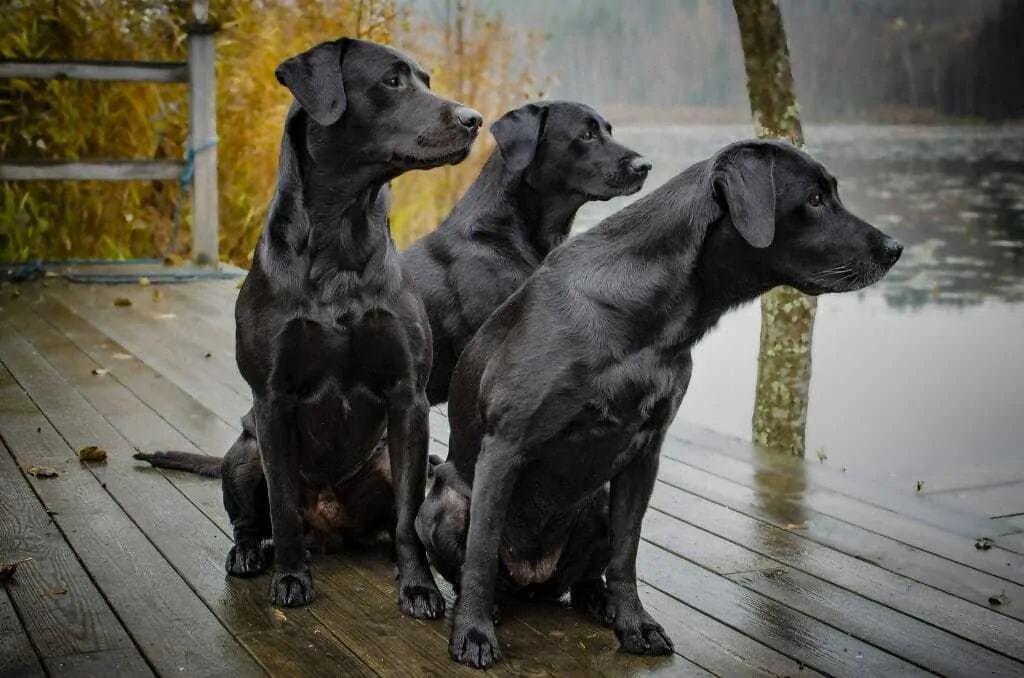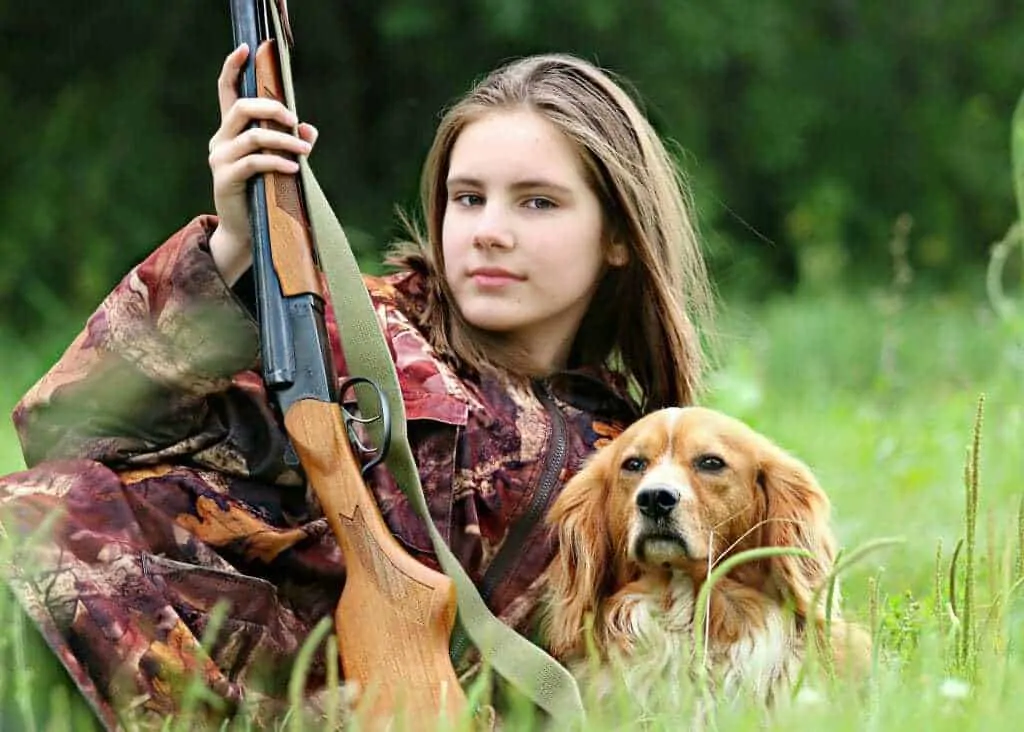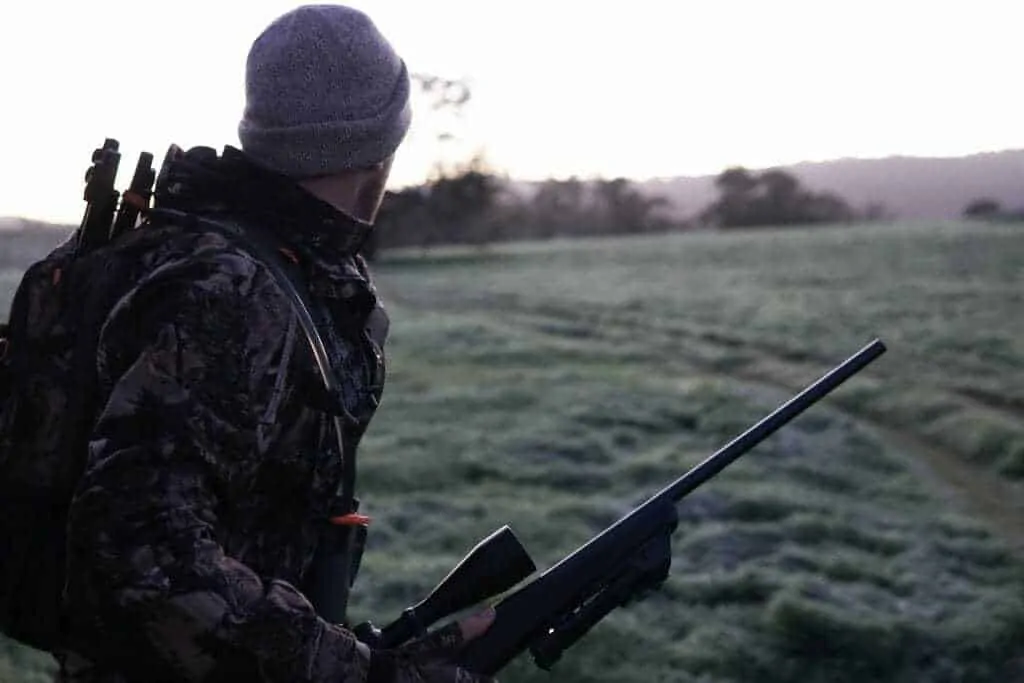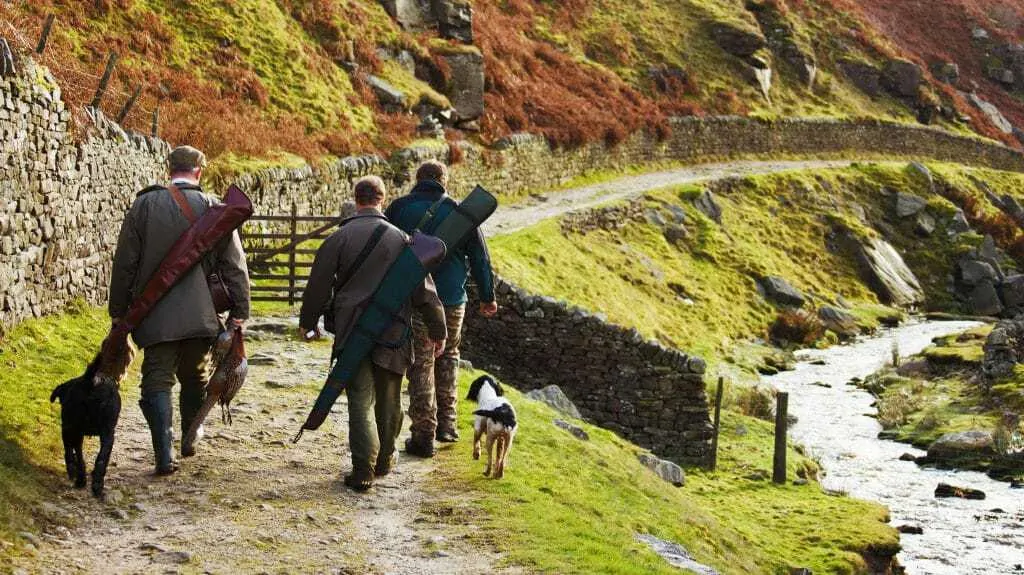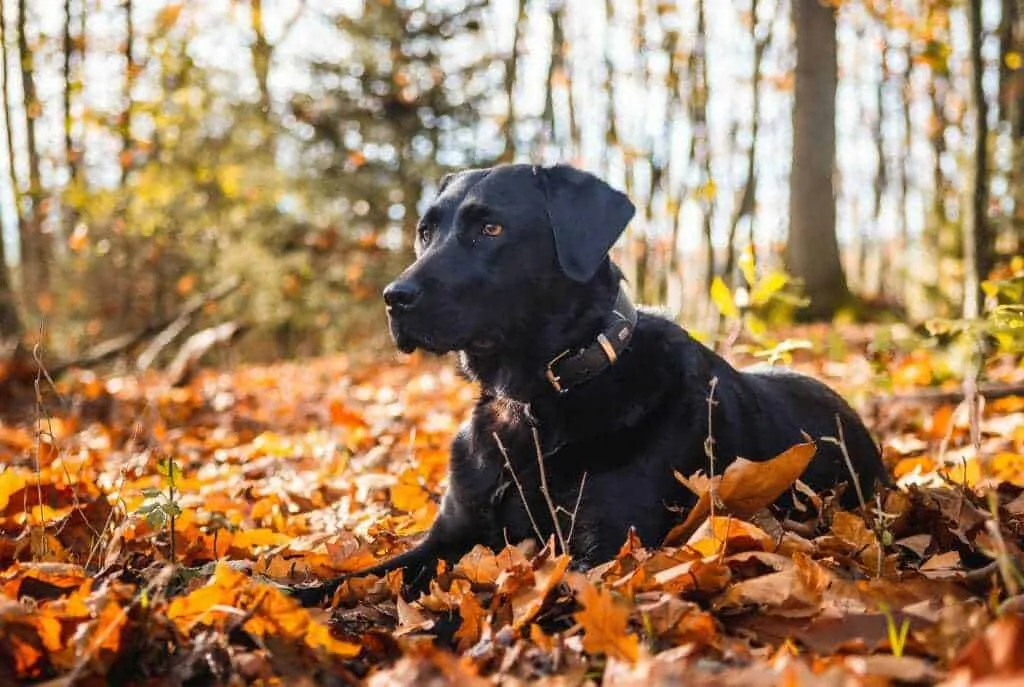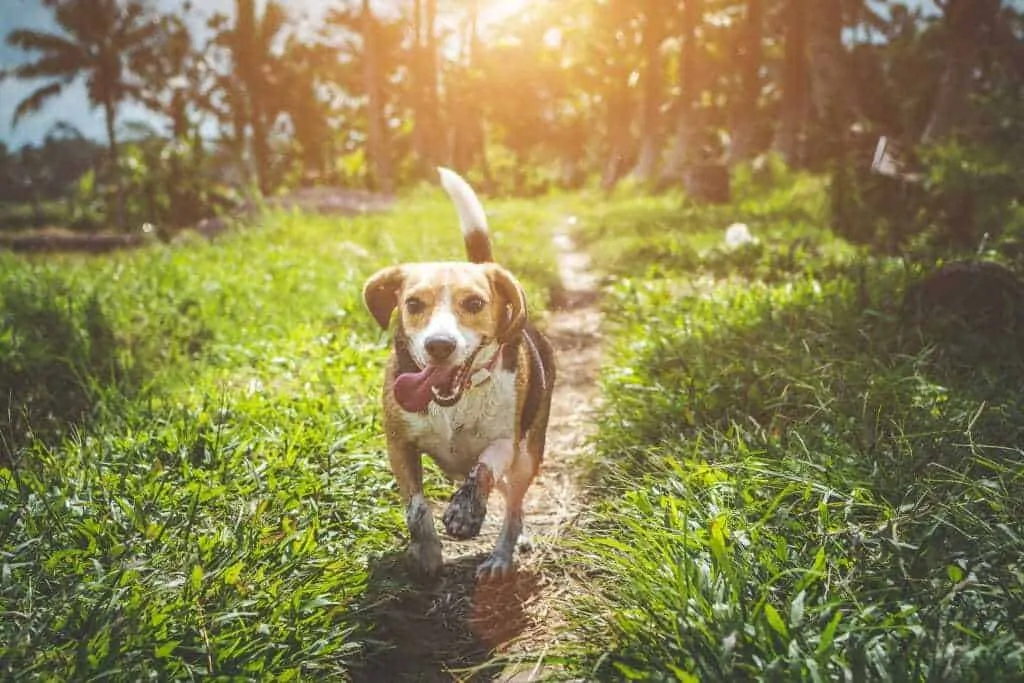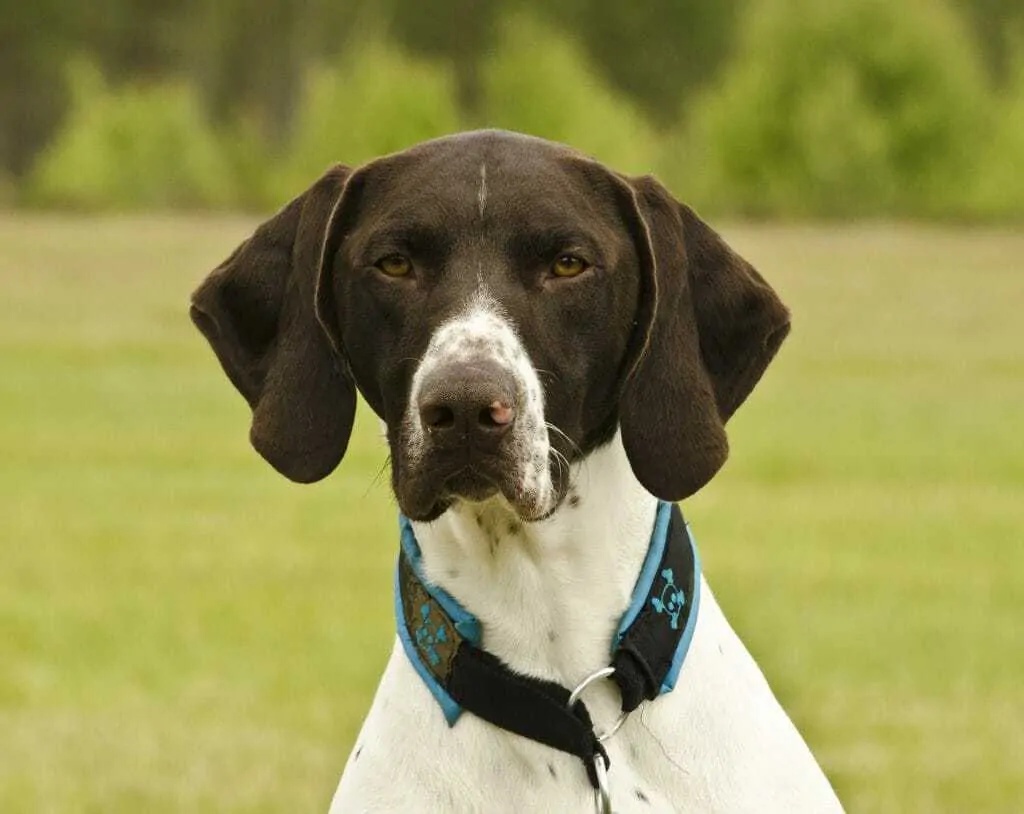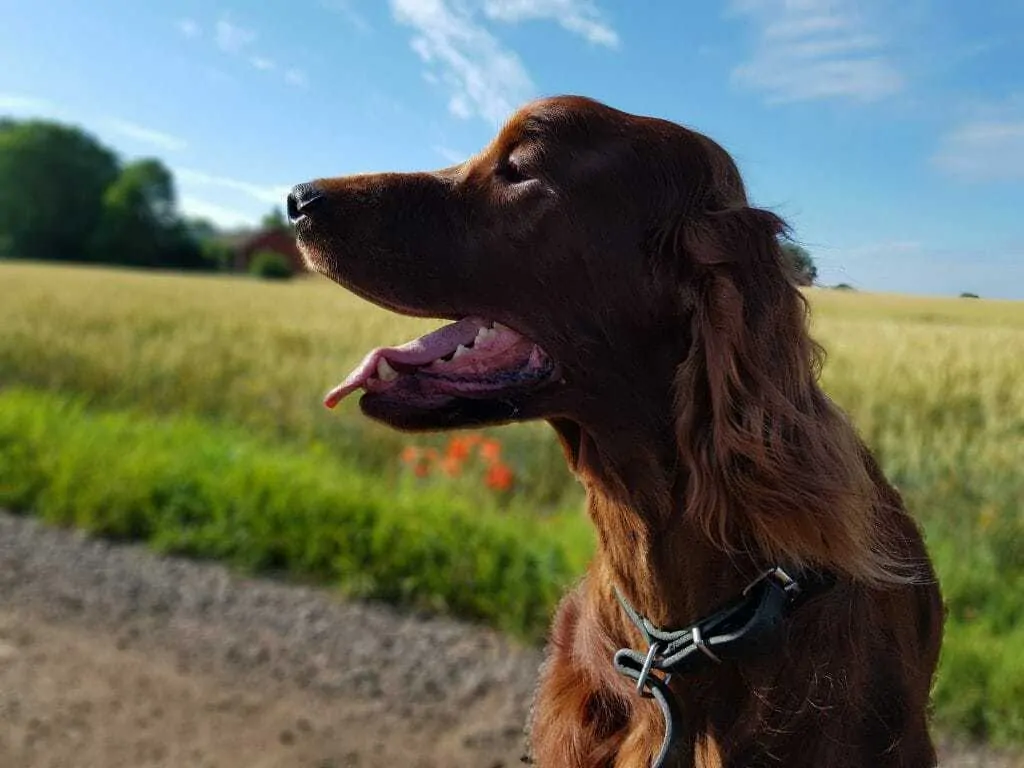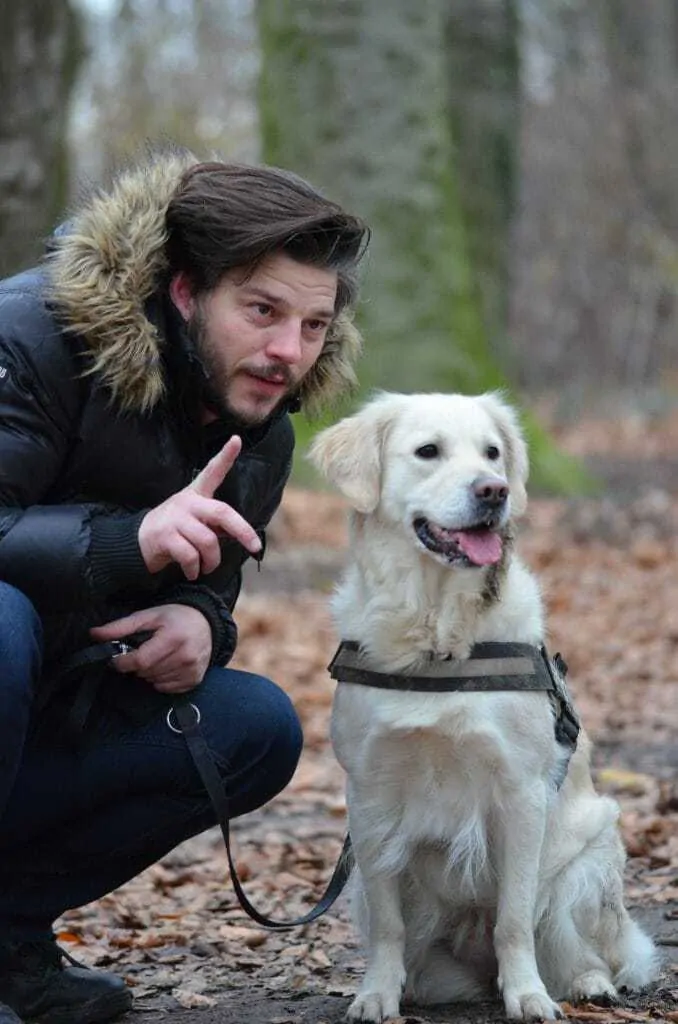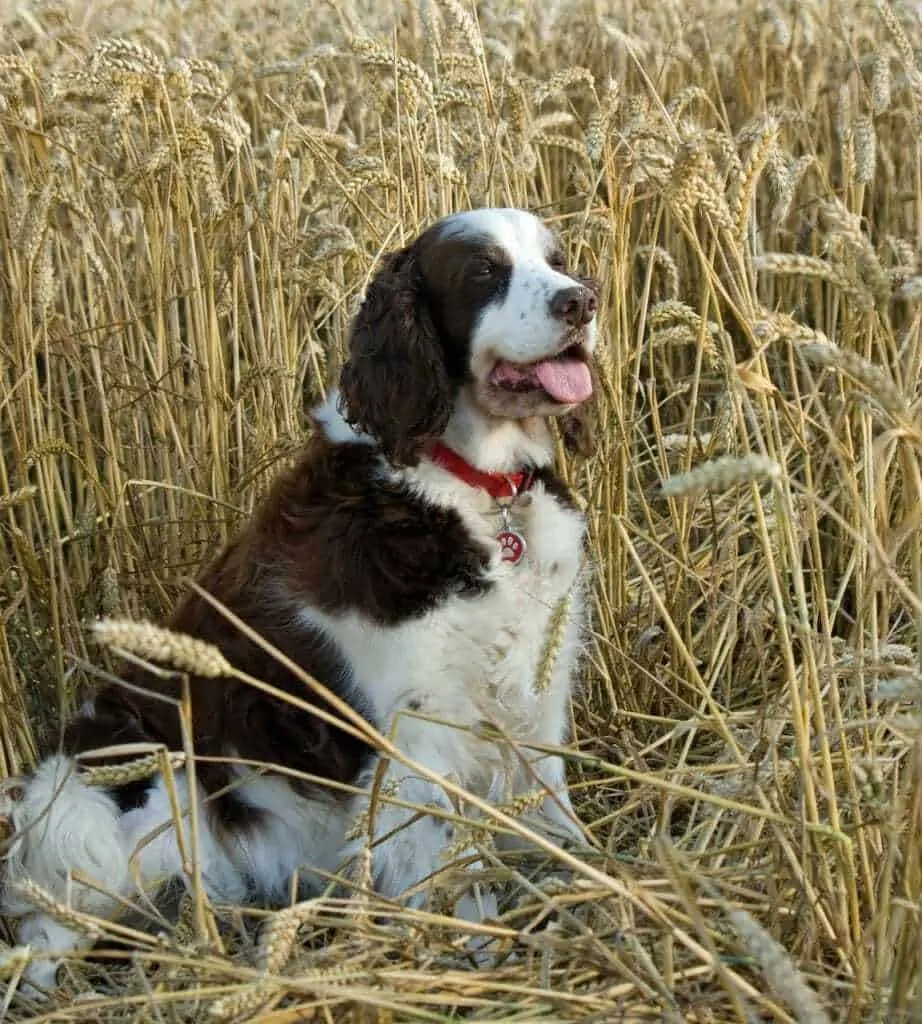Humans have been hunting with dogs for at least 20,000 years, and the relationship between hunter and dog has changed throughout the ages. Around 10,000 years ago, when man first began domesticating animals, dogs were tasked with overseeing the herd.
By about 6,000 years ago there were at least 5 distinct breeds of hunting dogs – shepherds, pointers, mastiffs, greyhounds and wolf breeds. As hunting became more of a sport and less of a necessity, humans began selectively breeding dogs for specific traits, leading to the hundreds of different breeds in existence today.
Man and dog have been hunting together for thousands of years, but the relationship between hunter and dog has changed throughout time.
Those who continue the tradition of hunting with dogs today must select the right dog for their hunting activities, invest the time in training them properly, and keep hunting safety top of mind. Read on to learn about the best breeds for hunting and how to select your new hunting partner.
Contents
Characteristics of Good Hunting Dogs
Whatever prey you hunt, there are some key traits you should be looking for in a hunting dog.
Good hunting dogs have a strong prey drive, excellent sense of smell and good temperament.
It goes without saying that a hunting dog needs a strong prey drive, an excellent sense of smell and good sight and hearing. Good hunting dogs need to be fearless and not be overly sensitive to sound – especially important for hunting with guns.
A good hunting dog has plenty of stamina and endurance to handle long days in the woods and fast-paced pursuits. Your dog should also be able to handle the elements and have a suitable coat for cold and wet conditions.
Your hunting dog needs to be intelligent and trainable, and a good temperament is key, especially if your hunting companion will double as a family pet.
Although all good hunting dogs share these common characteristics, the type of hunting you do and the prey you are after will also impact the specific traits and skills you’ll look for in a hunting dog.
Choosing a Hunting Dog
When it comes time to choose your new hunting dog, there are some important factors to consider to make sure you find the best companion for your hunting activities.
When selecting a puppy, you’ll want to pay close attention to the parents. Not only is the health of the parents important, but their size and temperment will give you an idea of what to expect from your pup. Parents that are a well-matched pair generally offer more consistency in the puppies. Parents with significant hunting experience or competition backgrounds will be more likely to have puppies with strong hunting desire.
Consider how your hunting partner will fit into your family, since most of your time together will be spent at home, not in the field.
You’ll also want to pay close attention to the breeder you purchase your puppy from. If possible, visit the facilities to see first-hand the conditions the puppies will be raised in and meet the parents and the breeders. Ask questions about the breeder’s experience, any health checks they perform and what their guarantee policy is – for example, if your dog develops health problems, will you be expected to return the dog to get a refund?
Finally, don’t forget to consider your lifestyle and living situation. Most of your time with your dog will be spent at home, not in the field, so it’s important that your dog will suit your lifestyle. If you have a small space and busy life, you won’t want a large dog with significant exercise requirements. If you have children at home, the temperament of your dog will be very important.
Training a Hunting Dog
Although inherited traits are important in hunting dogs, any good hunting dog requires a lot of work and training. The closer your bond with the dog, the better hunting partner they will be, so make sure to spend time together out of the field, and consider training your dog yourself to strengthen your bond.
An effective hunting dog requires a good training program starting at an early age to perform well in the field.
Hunting dogs require very specialized training, and first-time hunting dog owners should enlist the help of a professional trainer or training program to ensure your dog is properly trained. Regular old obedience won’t cut it. Your hunting dog needs to absolutely nail the basics – “No”, and “Heel” are a good start, and a solid recall is essential for hunting in the bush. Crate training will be very helpful for teaching your dog when it’s time to work.
Once your dog has mastered basic obedience, you can begin to introduce specialized hunting commands and tasks, like retrieving, linework and patterns. You can also begin to train your dog for the specific types of hunting you’ll do and the terrain you frequent. Upland hunting dogs that will need to retrieve fowl in marshes should begin water work early, and gun dogs should be introduced to guns at an early age. The younger you start gun safety training, the better – good training can teach your dog to associate gunfire with the reward of retrieving prey.
It’s important to start gun training early, so your dog learns to associate gunfire with the reward of retrieving prey.
It pays to invest in your dog’s safety when in the bush. Get the right gear, like a reflective hunting vest for visibility and a breakaway collar in case your dog gets entangled, and ensure your dog has a warm, dry place to rest.
Best Dog Breeds for Hunting
Proper training and careful selection are important steps in finding the perfect canine hunting partner, but good breeding and breed-specific traits are undeniably important when it comes to choosing a hunting dog.
Different breeds are better suited to certain types of hunting and prey.
The right breed depends largely on the type of hunting you plan to do and the type of prey you’re after. There are three main types of hunting dogs – Gun Dogs, Hounds and Terriers.
Gun Dogs: Gun Dogs work with small game and bird hunters who typically carry a shotgun. Their role is to flush out or retrieve prey, but not usually to chase or kill. There are many varieties of gun dogs, including pointers, retrievers, setters, spaniels and water dogs, that help hunters capture ducks, rabbits, and other small game.
Hounds: Scent Hounds often hunt in packs and use their superior sense of smell to follow and corner their target until the hunter arrives. They can be used for large game like deer, as hunting in a pack gives them an advantage. Sight Hounds generally hunt alone, and since they usually kill the prey themselves, they typically go after smaller game like rabbits.
Terriers: Terriers are generally small-game hunters who are known for digging or tunneling to get at prey. They are popular varmint-hunting dogs, as they can capture and kill prey in their dens.
Dogs can be useful for hunting a wide variety of game, from birds and small game to even large game like bear. Your typical quarry will impact the characteristics you’re looking for in a hunting dog – for example, a bird hunter will prefer a dog with a “soft jaw” so they can retrieve prey without damaging it.
The 10 Best Dog Breeds for Hunting
Labrador Retriever
Labrador Retrievers are one the best waterfowl-hunting breeds out there. They were bred for marking and retrieving, and built for wet conditions with a double coat, webbed feet and thick otter-like tail.
Beagle
Beagles have been used for small-game hunting for more than 200 years. Their small size, speed and agility, and superb scenting ability makes them the perfect dog for hunting rabbits, and their friendly disposition makes them a great family pet.
German Shorthair Pointer
German Shorthair Pointers are a classic pointing breed with an exceptional nose. They are incredibly agile with great endurance, making them a great all-around bird dog.
Bloodhound
A highly trainable and workable breed, the Bloodhound is known for its exceptional nose and tracking abilities. They are also surprisingly gentle, making them great companions for families with children.
Chesapeake Bay Retriever
With their thick, oily coats and webbed feet, this rugged breed is perfect dog for sea duck hunting. Chessies are fiercely loyal, can handle the toughest conditions, and are also the only retriever breed bred completely in the U.S.
Weimaraner
Nicknamed “The Gray Ghost”, Weimaraners are one of the most versatile hunting dogs, capable of hunting game birds, waterfowl, big game and even predators. They are incredibly smart, and bond very closely to their humans, but require lots of training and exercise to stay in shape.
Irish Setter
Setter’s sensitive noses allow them to find grouse in thick cover without startling them away. Just be sure to train your Setter to enjoy retrieving, as well.
American Foxhound
Although bred for fox hunting (as their name implies), American Foxhounds are also the perfect breed for running deer. They have great stamina, a strong nose and pack well with other dogs.
Golden Retriever
Golden Retrievers are one of the most popular breeds in America. They are naturals at marking and retrieving, but their friendly and loyal disposition also makes them great family dogs.
English Springer Spaniel
https://pixabay.com/photos/dog-english-springer-spaniel-spaniel-220480/
The Springer Spaniels is a loyal, hardworking breed with a great nose. This versatile bird dog does equally well in upland and wetland conditions, making it a great companion for duck and pheasant hunters.
Hunting With Dogs
A good hunting dog has a strong prey drive, an excellent sense of smell, and a trainable demeanor. The specific type of hunting you do and kinds of prey you’re after will influence which breed is best for your hunting style. Retrievers are made for flushing out and retrieving birds and waterfowl; hounds help hunters find and corner larger prey like deer; terriers can find and kill small game even in their dens.
The bond between hunter and dog is a strong one, and goes back thousands of years.
Whatever breed you choose, training is extremely important. Your hunting dog will need to master the basics of obedience, plus learn hunting-specific tasks. When choosing a hunting dog, it’s important to look at the parents to get an idea of the eventual size and temperament of your puppy. Always work with reputable breeders who guarantee rigourous health standards.
Man and dog have been hunting together for thousands of years, and the bond between a hunter and his dog is truly something special. With years of hunting and living together ahead of you, it pays to choose a dog that is part of the family, as well as a solid hunter.

Jen Jones is a professional dog trainer and behavior specialist with more than 25 years of experience. As the founder of ‘Your Dog Advisor’ and the ‘Canine Connection’ rehabilitation center, she applies a holistic, empathetic approach, aiming to address root causes rather than merely treating symptoms.
Well known for her intuitive and compassionate approach, Jen adopts scientifically-proven, reward-based methods, encouraging positive reinforcement over punishment. Jen specializes in obedience training, behavior modification, and puppy socialization. Her innovative methods, particularly in addressing anxiety and aggression issues, have been widely recognized. Jen has worked with many of the world’s leading dog behaviorists and in her free time volunteers with local animal shelters and rescue groups.

